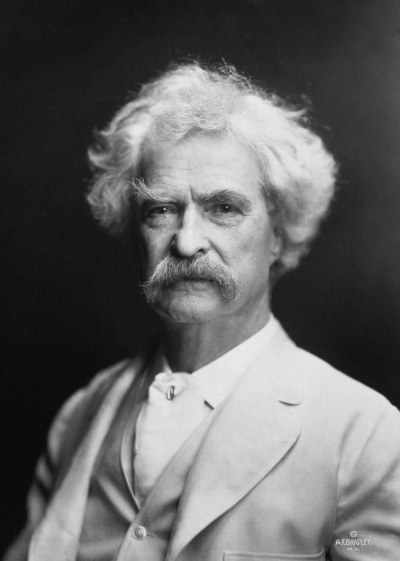Adventures of Huckleberry Finn or as it is known in more recent editions, The Adventures of Huckleberry Finn, is a novel by American author Mark Twain, which was first published in the United Kingdom in December 1884 and in the United States in February 1885.
Commonly named among the Great American Novels, the work is among the first in major American literature to be written throughout in vernacular English, characterized by local color regionalism. It is told in the first person by Huckleberry "Huck" Finn, the narrator of two other Twain novels (Tom Sawyer Abroad and Tom Sawyer, Detective) and a friend of Tom Sawyer. It is a direct sequel to The Adventures of Tom Sawyer.
The book is noted for "changing the course of children's literature" in the United States for the "deeply felt portrayal of boyhood". It is also known for its colorful description of people and places along the Mississippi River. Set in a Southern antebellum society that had ceased to exist over 20 years before the work was published, Adventures of Huckleberry Finn is an often scathing satire on entrenched attitudes, particularly racism and freedom.
Perennially popular with readers, Adventures of Huckleberry Finn has also been the continued object of study by literary critics since its publication. The book was widely criticized upon release because of its extensive use of coarse language and racial epithet. Throughout the 20th century, and despite arguments that the protagonist and the tenor of the book are anti-racist, criticism of the book continued due to both its perceived use of racial stereotypes and its frequent use of the racial slur "nigger".
Samuel Langhorne Clemens (November 30, 1835 – April 21, 1910), known by his pen name Mark Twain, was an American writer, humorist, entrepreneur, publisher, and lecturer. He was lauded as the "greatest humorist the United States has produced," and William Faulkner called him "the father of American literature". His novels include The Adventures of Tom Sawyer (1876) and its sequel, Adventures of Huckleberry Finn (1884), the latter of which has often been called the "Great American Novel".
Twain was raised in Hannibal, Missouri, which later provided the setting for Tom Sawyer and Huckleberry Finn. He served an apprenticeship with a printer and then worked as a typesetter, contributing articles to the newspaper of his older brother Orion Clemens. He later became a riverboat pilot on the Mississippi River before heading west to join Orion in Nevada. He referred humorously to his lack of success at mining, turning to journalism for the Virginia City Territorial Enterprise. His humorous story "The Celebrated Jumping Frog of Calaveras County" was published in 1865, based on a story that he heard at Angels Hotel in Angels Camp, California, where he had spent some time as a miner. The short story brought international attention and was even translated into French. His wit and satire, in prose and in speech, earned praise from critics and peers, and he was a friend to presidents, artists, industrialists, and European royalty.
Twain earned a great deal of money from his writings and lectures but invested in ventures that lost most of it—such as the Paige Compositor, a mechanical typesetter that failed because of its complexity and imprecision. He filed for bankruptcy in the wake of these financial setbacks, but in time overcame his financial troubles with the help of Henry Huttleston Rogers. He eventually paid all his creditors in full, even though his bankruptcy relieved him of having to do so. Twain was born shortly after an appearance of Halley's Comet, and he predicted that he would "go out with it" as well; he died the day after the comet made its closest approach to the Earth.

1884Dec, 10
Mark Twain's Adventures of Huckleberry Finn is published.
Choose Another Date
Events on 1884
- 27Mar
Cincinnati riots of 1884
A mob in Cincinnati, Ohio, attacks members of a jury which had returned a verdict of manslaughter in what was seen as a clear case of murder; over the next few days the mob would riot and eventually destroy the courthouse. - 20Apr
Humanum genus
Pope Leo XIII publishes the encyclical Humanum genus. - 14Oct
Photographic film
American inventor George Eastman receives a U.S. Government patent on his new paper-strip photographic film. - 22Oct
Prime meridian (Greenwich)
The Royal Observatory in Britain is adopted as the prime meridian of longitude by the International Meridian Conference. - 10Dec
Adventures of Huckleberry Finn
Mark Twain's Adventures of Huckleberry Finn is published.

 English
English  español
español  français
français  português
português  русский
русский  العربية
العربية  简体中文
简体中文 